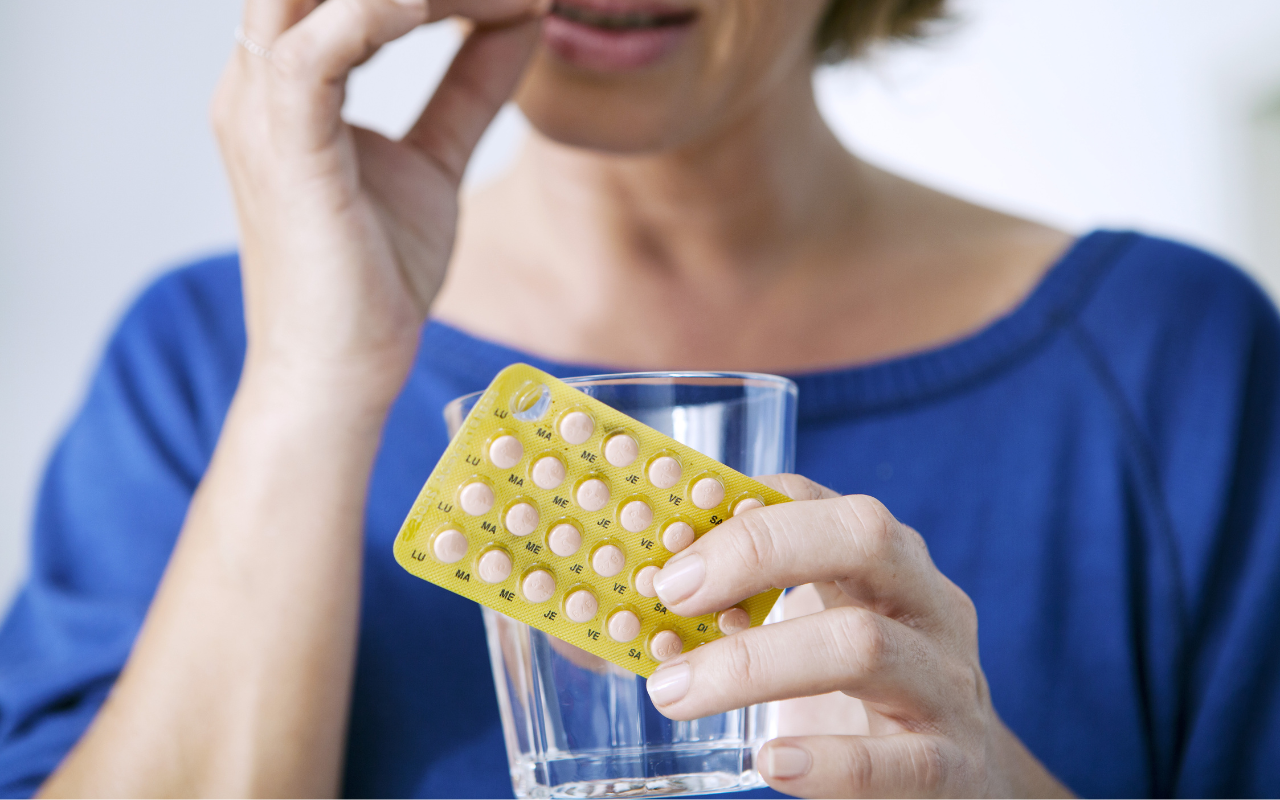Despite advances in our understanding of the risks and benefits of menopausal hormone therapy, outdated research continues to raise concerns for both patients and their clinicians.
Menopausal hormone therapy (MHT) has seen dramatic perception shifts over the past 70 years. From initially being lauded for cardiovascular protection, studies in the early 2000s caused widespread concern by highlighting both increased cardiovascular and breast cancer risks.
However, recent research reveals a more nuanced perspective and how there are many health and lifestyle benefits to MHT (also known as hormone replacement therapy or HRT), especially when started earlier.
A research article published in Research, Fertility and Development outlined the metamorphosis of MHT and explained how the risks and benefits are not fully understood or communicated.
The history of menopausal hormone therapy
According to author Professor Bronwyn Stuckey from the University of Western Australia, MHT used to be seen as largely beneficial for cardiovascular risk reduction.
“When you talk to patients, we’d say it’s better for bones, it’s better for cardiovascular, it reduces weight gain, and the only downside is [the risk of] breast cancer. And then we’d talk about ways to mitigate that,” she said.
However in 2002, the Women’s Health Initiative (WHI) study was released, which reported both an increase in breast cancer and an increase in cardiovascular disease in women on MHT.
“Initially, the statement was made that the ‘increased risks for cardiovascular disease and invasive breast cancer were present across age strata. Results are likely to be generally applicable to healthy women in this age range.’” Professor Stuckey wrote in her article.
There was a huge media hype at the time and it caused a shift in attitudes of both doctors and patients away from MHT.

“Even one of the co-authors of the WHI study mentioned that the treatment of menopausal symptoms has been derailed by the interpretation and editorial [of the WHI study],” she told InSight+.
“When the WHI study came out, the first author said that there was risk for cardiovascular disease across all age strata, which is not a correct statement. When you actually look at the WHI findings, the only group in which there was a significantly increased risk of cardiovascular events was the women who were more than 20 years past the menopause, and who had continuous combined HRT,” Professor Stuckey explained.
In 2007, the WHI investigators published a more nuanced analysis of their data, “which revealed the difference between the oestrogen-only and the oestrogen plus progestogen (E + P) MHT, and the difference between starting early after menopause and starting later,” Professor Stuckey wrote.
There have also been several more studies analysing the risks and benefits of HRT, the timing of HRT and the types of therapies.
Current MHT therapies
According to the Royal Australian and New Zealand College of Obstetricians and Gynaecologists councillor, Dr Anna Clare, this recent research, including a 15 year follow-up to the WHI study, that showed neither cardiovascular mortality nor all-cause mortality were increased by MHT, is reassuring to clinicians and their patients.
“I think from the point of view of starting hormonal therapy around the time of menopause, I think practitioners would feel pretty confident to reassure women that you’re not at increased risk of cardiovascular disease, and actually risk is probably reduced by MHT,” she said.
However, Professor Stuckey highlighted that much of this research hasn’t been integrated into practice partly because the Monthly Index of Medical Specialties (MIMS) directions haven’t caught up with the evidence.
She told InSight+ that this evidence includes:
1) “That there are no stopping rules for MHT. It can continue for as long as there is an indication.
2) “Oestrogen is just as effective as an anti-resorptive agent to prevent fractures as drugs like bisphosphonate and denosumab, and much more appropriate for the young woman.
3) “That the so-called window of opportunity does not mean that one cannot start MHT after 10 years past the last menstrual period. It just means the cardiovascular benefit may not be as great, but the benefit for vasomotor symptoms and quality of life will be just as great.”
When informing patients about post-menopausal health, clinicians should compare the risk of breast cancer to the greater risk of cardiovascular disease and the effect of MHT on preserving bone density and decreasing the risk of type 2 diabetes. However, most importantly, is its impact on quality of life.
“There are an increasing number of menopausal women in the workplace, increasing number of menopausal women in leadership roles. And there are more women internationally who are championing this, Michelle Obama, Davina McCall. They’re saying menopause is a real thing,” Dr Clare highlighted.
This resurgence of speaking about the problem combined with compelling research shows other women that they don’t have to suffer in silence.
“For many years, women have suffered menopause symptoms, which can be pretty debilitating and can really affect quality of life. And now more people are less worried about treating the symptoms with HRT because we have robust safety data,” Dr Clare said.
When prescribing HRT, Professor Stuckey said although there are a few rules, a personalised approach is crucial.
“There are a few overall rules, like ‘no uterus = no progestogen’ because of the lower risk of breast cancer and the greater cardiovascular benefit with oestrogen-only MHT. However, transdermal oestrogen is preferred for people with risk of venous thrombosis or who have had a venous thrombosis, or for women with migraine which is sensitive to hormonal fluxes. Women who are very close to their last menstrual period will do better with cyclical MHT rather than continuous combined.
“One of my colleagues once described choosing MHT formulae or preparations as a bit like trying on a dress to see which one suits you. One formulation will not suit everyone,” she concluded.
Subscribe to the free InSight+ weekly newsletter here. It is available to all readers, not just registered medical practitioners.

 more_vert
more_vert
“DrPhil” and Karen: That is why I cited the KEEPS and ELITE trials, which tested both oral and transdermal estradiol against CEE or placebo. With the exception of one weak surrogate marker (CIMT progression) that was slowed by oral estradiol in younger women (ELITE), no formulation of estrogen in either trial slowed CAC buildup. If anything it was slightly increased in younger women on both oral and transdermal estradiol.
Sometimes it takes “didactic” statements to get a point across, but at least they’re backed by data. What I avoid is post-hoc data-splicing for the sake of eking out some nonexistent benefit – which is what HT shills have been doing for 20 years. At the end of the day, this is not helpful for women, and places them in harm’s way.
Commenter JR claims that:
‘No drug (estrogen) prevents a disease at one age but causes it at another. That’s ridiculous and unscientific. Estrogen does not prevent heart disease in younger women, it merely poses less risk to them than it does for older women.’
Yet the original WHI author Rossouw, (cited by Prof Stuckey) wrote in 2007:
‘Estrogen may have dual and opposing actions, retarding the earlier stages of atherosclerosis through beneficial effects on endothelial function and blood lipids, but triggering acute events in the presence of advanced lesions through procoagulant and inflammatory mechanisms.’
Rossouw JE, Prentice RL, Manson JE, et al. Postmenopausal Hormone Therapy and Risk of Cardiovascular Disease by Age and Years Since Menopause. JAMA. 2007;297(13):1465–1477.
JR’s rather didactic and negative diatribe, hiding behind the cloak of anonymity, would be best addressed by a recognized Australian senior researcher and clinician such as John Eden. He fails to acknowledge the limits and shortcomings of the WHI study, primarily its restriction to one oral combination. I retired from O&G practice in 2018 after 35 years.
Oestrogen restored my ability to sleep soundly and maintain mental calmness. Have taken it for 25 years and am 70 now. No fragile bones. Blood pressure low to normal. Skin quality excellent.
Progesterone had psychological negative effects.
The WHI is not “outdated” research – it remains the only definitive trial testing the then-most commonly used HRT preparations, Premarin and Prempro, as long term strategies for postmenopausal health maintenance. The trial has not been invalidated simply because it’s 20 years old, nor has it been invalidated by all these posthoc subgroup analyses trying to eke out benefits that just aren’t there.
The “timing hypothesis” remains just that – a HYPOTHESIS. It has not been proven to be a real thing because WHI was not designed to test for age effects. No drug (estrogen) prevents a disease at one age but causes it at another. That’s ridiculous and unscientific. Estrogen does not prevent heart disease in younger women, it merely poses less risk to them than it does for older women.
As for different formulations (bioidentical, patches, etc.), no large scale clinical trials of the magnitude of WHI have shown them to prevent heart disease or dementia. Two small trials (KEEPS and ELITE) which compared estradiol to Premarin or placebo (former) or estradiol to placebo (latter) showed that HT in younger women did not slow progression of atherosclerosis or preserve cognitive function.
So until sufficiently large trials prove that different types of estrogen given in early menopause have all these miraculous antiaging benefits, the WHI continues to remain the gold standard. Unfortunately, HRT is not an elixir and it poses serious health risks to women of all ages. And no amount of data splicing and manipulation is going to change that fact. You cannot force the results you want.
I am Felice Gersh, MD, an OB/GYN from California. I have been advocating for hormones for menopausal and perimenopausal women … since prior to and since that unfortunate WHI study happened. I’ve several review papers published in prestigious medical journals … but it has been terribly hard to impact the majority of physicians and their practice and to date impossible to get medical societies to support HRT for the multitude of health benefits it affords, and not just symptom treatment.
Thanks for your opinion piece! The more docs onboard the better. Menopause is all about the loss of ovarian production of estradiol and progesterone … and both matter! (With and without a uterus!) Of course we need more studies … but decisions must be made in real time. Providing all women (with a few exceptions) physiologic, cyclic hormones to somewhat replicate the hormones of a young, healthy, reproductive aged woman is the best thing to do, which requires transdermal estradiol and bioidentical progesterone … not a protestin!
Estradiol and progesterone are “life hormones” and should be ideally started early (but wherever a woman is on her timeline) and continued for her life!
Congratulations on a great opinion piece!!
Absolutely agree that hormonal therapy maintains quality of life and can be taken for rest of life if wanted.The link with breast cancer in the Nurses study(ongoing in Us still) is only .o8% which is NOT statistically significant and far less than the 16% link with HAIR DYES which NO ONE talks about!
Great take home messages that neither overstate or understate the facts – a goldilocks article from the voice of reason ! Well done .
I began MHT only 6 weeks ago and it is already one of the best decisions I’ve made for me.
No woman should be expected to endure the menopause in silence. No more full body sweats at 2am in 5 degrees, ripping all my clothes off and my extra long hair soaking wet with sweat for me! Only too do it all again in two hours! No more! It is exhausting and debilitating.
Partners need to be involved in the menopausal journey too. Oft times they’ve witnessed the person they fell in love with become unrecognisable. If a man knew the signs to be aware of he could lovingly say “Remember that conversation we had about 30 years ago? I know it’s your body, but I think it’s time for the MHT”